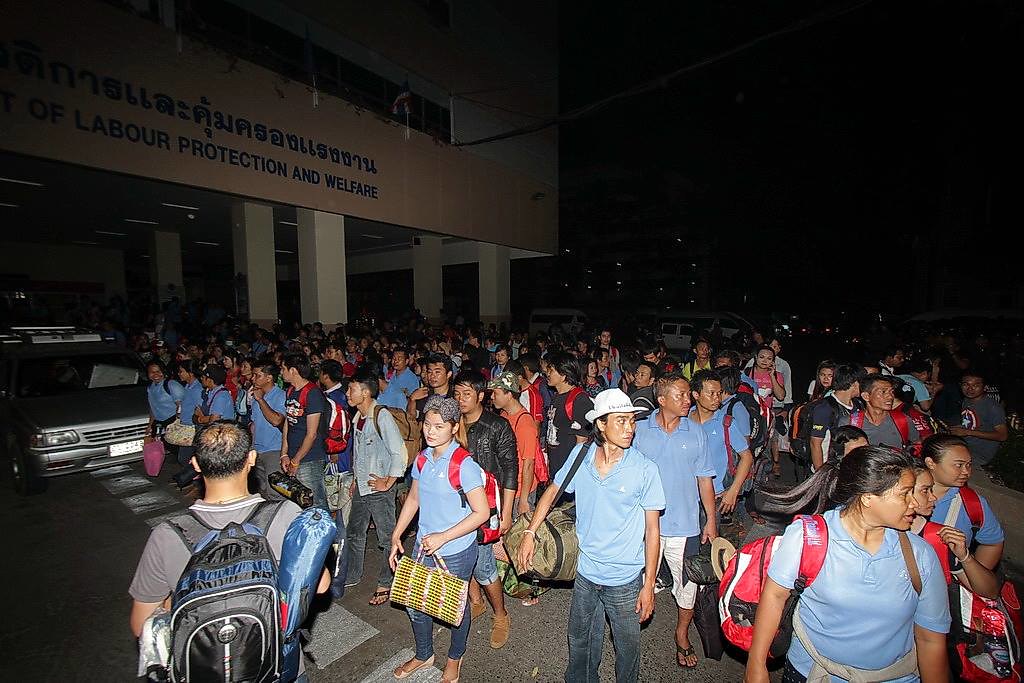
Thailand has always been a diverse place of people of different racial, cultural, physical and mental backgrounds. Unfortunately, we seem to forget to include this vital concept in our social policies.
Indeed, diversity is more than a mere buzz word. With expanding regionalism, Thai businesses’ greater incorporation of individuals with different conditions and abilities into their workforce can enhance their productivity while helping contribute to social and economic progress as a whole.
Unfortunately, when we examine how Thais learn about diversity or how to manage workforce of diverse backgrounds, it seems that the centrality of ‘Thai identity’ can distort the issue. It has remained unspoken and under-utilised, thanks to the growing sentiment of ‘Thainess’ and the rising trend of nationalism in this society!
But Thailand’s greater adoption of diversity management can happen and it can start at schools.
Thailand needs people who understand this concept and practice it. We need business operators, owners, managers, educators, and leaders who are fully aware of the challenges of diversity in the current global and local context.
The creation of ethical and diversity sentinels at school level is truly important. Thai educators need to commit themselves more to teach and promote diversity management in their curriculum.
Diversity gives all organisations access to a greater range of ideas and global connectedness, not just the talent that belongs to a particular world-view or some other restricting definition. Management of diversity will provide insight into the needs and motivations of all of stakeholders.
The dilemma in learning and teaching of diversity in Thai schools is to move or not to move beyond the nationalist sentiments. At present, two scenarios have emerged.
Known as “continued globalisation,” the first scenario is a positive one that has been widely discussed among the ‘globalists’. Emerging economies and/or hyper growth in trade have been a major conduit of overall world growth and reduction in poverty. We believe in the power of diversity.
Research shows that promotion of diversity in developed countries, such as Australia and Germany, is related to higher political participation among their citizens, people engagement in social policies, and decreases in poverty and upgrades in economic and technological capabilities. Good education can accelerate the level of diversity worldwide.
On the other hand, we are still experiencing Thais who criticise diversity and mobility of people as the negative consequence of globalisation. We still witness issues such as nationalism, homophobia, sexist, discrimination among migrant workers from Cambodia, Laos, Myanmar and Vietnam, lack of legal and social systems to promote equality among migrant workers in Thailand.
In the current climate, we have seen actions that explain the lack of understanding of diversity from the Governmental policies such as threatening unregistered migrant workers with long prison terms and large fines. This poor understanding of basic diversity leads to corruption among officials and unscrupulous employers to abuse and exploit the workers.
Obviously, we do not comprehend the concept of diversity.
The debate on diversity management in Thai education remains sluggish, although almost all universities offer business and management degrees aiming at producing managers of global standard.
There are two important points that Thai schools should consider when they develop their management curriculum.
The first issue is “how to teach high-level diversity management in the curriculum?” There are, in fact, a wide range of learning and teaching activities that can help students recognise the essential humanity and value of different types of people. This is a good starting point.
If we start from the classroom level, our business students will be able to design a strong organisational framework on diversity management, which is still lacking in Thailand. This framework can be developed after the introduction of national legislation designed to promote equal opportunity in society at all levels. We need more role models when to comes to diversity in Thailand.
We should encourage both public and provate organisations to be the role models in issues such as skills promotion for people with disabilities, lesbian, gay, bisexual, transgender, questioning and interest (LGBTQI)staff and their rights, equality among men and women at work, older workers in the Thai workforce, and acknowledgements of migrant workers in the contemporary Thai economy.
Role models who demonstrate exceptional leadership qualities from diverse backgrounds, and make social contributions in a non-stereotypical way will help students recognise the meaningful and limitless ways in which they can have a positive impact on society.
More importantly, we need to teach the future business leaders to be clear on “what they want to achieve” in developing diversity policies.
There are a number of lessons-learnt on the fundamental error of failing to align corporate’s diversity practices with their goals. Some Thai business organisations aim to promote potential of diverse teams, by then implement diversity policies, primarily designed to foster the representation of certain social groups in leadership positions. Without understanding a clear objective of diversity, they will fail and give up on such policies. Only by understanding what the ultimate goal is can they have a chance of reaching it.
Diversity policies must be researched, assessed for effectiveness, and implemented with care so that everyone in our society can feel valued and supported. Socially, we are becoming more knowledgeable about, and accepting of, individuals with unique conditions and abilities, which is generating an ecosystem of inclusiveness. Thai schools will need to serve the real change when it comes to diversity in our society.
Nattavud Pimpa is an associate professor in international business at the College of Management, Mahidol University.

